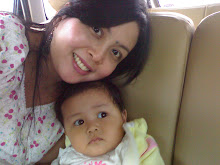Stop hitting becoming a habit
| Almost every child, at some stage, gets into a fight and pushes or hits a playmate. Knowing how common this behavior is doesn’t make it any easier when it’s your child that hurts someone, bites or pulls hair. Parents feel awful. It can help to look at why children fight and have some consistent tactics to stop it happening again. |
Why does my child hurt or fight?
| Younger children may hurt others without realizing what they are doing. Your toddler may also hurt others because of frustration or anger. At this age toddlers are very self-centered and only have a limited perception of others’ emotions and pain.
As your child gets older frustration or anger is still a major cause of aggressive behavior. Older preschoolers may hit out at others if they don’t know better ways of problem-solving or communicating their needs.
Hurting others may be a way for your toddler or preschooler to get what they want from another child, like the toy they are playing with.
Children may also learn to fight by watching others. If children see adults arguing and fighting they are likely to do the same. If the strategy of hurting another child works, and your child gets what they want this way, that behavior is more likely to continue. Children need to learn acceptable, non hurtful ways of getting along with others and solving problems. |
Prevention is better than cure
| Toddlers:
For younger children, try to anticipate problems and prevent them if possible. Be physically close when they are playing with other children and act quickly if your child is about to hurt someone. Aim to encourage sought-after behaviors. When you see your child playing well (this may be by themselves) give them lots of attention and praise them by telling them exactly what they are doing that pleases you: “You’re playing nicely with the trucks today Jim”. Your toddler may have difficulty saying what they want. Give them some words that they can use: “David say – John it’s my turn now”. Remember to praise your child, this time for nicely saying what they want. Children aren’t fooled by false praise. Ensure your praise is appropriate for the behavior they have exhibited. Preschoolers: Your preschooler will be interacting more with their peers and learning to play co-operatively. Give them attention when they are playing well, sharing or co-operating.
Decide on a couple of simple rules for your preschooler about playing with others and talk these rules through with them. Tell your child what behavior you want to see, for example – share and take turns, be gentle, keep your hands and feet to yourself.
You may need to set up activities that foster sharing, turn-taking and co-operation, like ball games and board games. Start by playing these games with your child and model the turn-taking behavior to them.
If hurting behavior has been a big problem, you may like to have a short-term strategy of giving your child a reward for being gentle and playing well with others. Remember to tell your child how delighted you are when they do the right thing. For your preschooler you may need to begin teaching problem solving skills. Step in and help your child to solve a problem before a fight occurs. Even preschoolers have difficulties finding the right words. You can help by suggesting words: “Julia says – you have had a turn, now it’s my go”. When teaching problem-solving to preschoolers, ask them what the problem is, what each child wants and what they can all do to compromise. |
What to do when your child hurts someone
|
What not to do:
|

No comments:
Post a Comment